Power and corruption: the public-private imperial mafia
Chatham House, the name commonly given to The Royal Institute of International Affairs, is an extremely influential “think tank” based in London.
It has enjoyed the patronage of the British monarchy for a century now, with Charles III recently joining the list of royal backers.
Director Bronwen Maddox said on May 9 2024: “Chatham House is delighted to accept the Patronage of The King, a great help in advancing our work on the security, prosperity and sustainability of the world”.
Upcoming events include sessions on “US priorities in the Indo-Pacific“, “Recalibrating our assumptions on cybersecurity” and “Solutions for a world in conflict“.
Readers of the “insider” US historian Professor Carroll Quigley will know that he identified Chatham House as the most important vehicle for the public-private Anglo-American Establishment that he saw dominating the corridors of power on both sides of the Atlantic.
It was formally established in 1920, gaining its Royal charter in 1926, and a sister organisation, the Council on Foreign Relations (CFR), was set up in the USA.
Quigley refers to the movers and shakers behind these organisations as the “Milner Group”, because of the key role of journalist turned civil servant Alfred Milner (pictured), which seems to have begun after a dinner with Lord Rothschild in 1891. [1]
Quigley relates that Milner later found lucrative employment as “confidential adviser to certain international financiers in London’s financial district”. [2]
He became a member of the board of the London Joint Stock Bank (later the Midland Bank), a director of the Mortgage Company of Egypt and of the Bank of British West Africa, and chairman of the Rothschilds’ Rio Tinto Co.
While Chatham House pretends to be “independent”, Quigley stresses that this is not at all so and warns of the sinister implications of its true function.
“The Milner Group controls the Institute. Once that is established, the picture changes. The influence of Chatham House appears in its true perspective, not as the influence of an autonomous body but as merely one of many instruments in the arsenal of another power.
“When the influence which the Institute wields is combined with that controlled by the Milner Group in other fields – in education, in administration, in newspapers and periodicals – a really terrifying picture begins to emerge…
“The picture is terrifying because such power, whatever the goals at which it may be directed, is too much to be entrusted safely to any group…
“No country that values its safety should allow what the Milner Group accomplished in Britain – that is, that a small number of men should be able to wield such power in administration and politics, should be given almost complete control over the publication of the documents relating to their actions, should be able to exercise such influence over the avenues of information that create public opinion, and should be able to monopolize so completely the writing and the teaching of the history of their own period”. [3]
At the start of its existence, Chatham House was helped on its way with a gift of £2,000 from Thomas Lamont of J.P. Morgan and the CFR in the USA was also created with J.P. Morgan money. [4]
When you know that J.P. Morgan was a Rothschild front, then you already know where these two organisations came from.
But what about today? What can we find out about the power behind Chatham House in 2024?
Let’s start with its presidents, the first of whom is Baroness Manningham-Buller.
The Chatham House site states that she “has extensive knowledge of and experience in international security as well as a deep interest in medical research and global health”.
But what they really mean is that her career exposes the close links between the deep state and Big Pharma!
Manningham-Buller was director-general of MI5 between 2002 and 2007 – during the period of the Iraq war and the attendant controversy, such as the “dodgy dossier” on weapons of mass destruction and the strange death of dissenting scientist David Kelly.
She was also at the helm of MI5 during the 2005 London terror attack, with which her service is suspected to have been complicit, as I recently set out.
Manningham-Buller was chairman of the council of Imperial College London from 2011 to 2015.
Imperial was, of course, later to be heavily involved in the Covid scam.
Its Covid-19 Response Team, headed by Neil Ferguson, notoriously released a paper in March 2020 warning that health services risked being overwhelmed by the severity of the so-called pandemic – “epidemic suppression is the only viable strategy”.
The report stressed: “In the UK and US context, suppression will minimally require a combination of social distancing of the entire population, home isolation of cases and household quarantine of their family members”.
Manningham-Buller was also a member of the Board of Governors of the Wellcome Trust from 2008 to 2021 and chair of the Wellcome Trust’s Board of Governors from 2015 to 2021.
This British “charity” is closely linked to Big Pharma and its Covid “vaccines”.
Manningham-Buller was – needless to say! – an enthusiastic supporter of the full range of Covid-pretexted propaganda and restrictions.
She wrote the foreword to a 2022 report on the work of the Emergency, Preparedness and Response Health Protection Research Unit (EPR HPRU) at King’s College London, in partnership with the UK Health Security Agency, which focused on the use of “behavioural science” during the Covid period.
And she declared: “If anyone had any doubt about the critical importance of behavioural science, those doubts should have been roundly dispelled by the urgent and compelling need for it during the pandemic.
“When asked to chair the Advisory Board of the unit, I accepted at once, partly because of my own background in MI5 – where our in-house behavioural science unit had proved invaluable over many decades – and partly because of what I saw of the discipline during my dozen years at the Wellcome Trust”.
Manningham-Buller enthused: “In its work on Covid-19 the unit has demonstrated how important and necessary it is. It responded brilliantly to the worst health crisis for many years”.
Another Chatham House president is Mark Carney, best known for his role as governor of the Bank of England from 2013 to 2020, following a spell as governor of another central bank, the Bank of Canada, from 2008 to 2013.
Carney constantly hops from one side to the other of the “public-private” entity, having worked at Goldman Sachs as well as at the Canadian Department of Finance. He is also the UN Special Envoy for Climate Action and Finance.
In 2023 he became chairman of Bloomberg Inc., parent company of Bloomberg L.P., the New York financial, software, data, and media company.
He is also chair of Canadian multinational Brookfield Asset Management, where he was put in charge of “impact fund investing”.
If you don’t know what that means, take a look at the Winter Oak page of information about what is more accurately termed “impact slavery“.
Carney has full-spectrum involvement with globalist institutions, including the Hoffman Institute for Global Business and Society, the Bilderberg Group and the World Economic Forum (WEF), where he is on the Foundation Board and on whose site he presents a propaganda video on “accelerating sustainable investment”.
He declares: “We need to transition the energy system on the scale of the industrial revolution, at the speed of the digital transformation”.
Carney has also chaired the Basel-based Financial Stability Board and the Bank for International Settlements’ Committee on the Global Financial System.
A third Chatham House president, Helen Clark, is also a faithful servant of the empire, having been prime minister of Commonwealth colony New Zealand from 1999 to 2008.
In March 2002 she was summoned to the USA to visit “Ground Zero”, meet George W. Bush and Paul Wolfowitz and pledge her support for the so-called War on Terror.
Her Labour government was “prone to various scandals, often labelled with the dreaded ‘-gate’ suffix”, as one New Zealand site puts it – these included “corngate”; the Taito Phillip Field corruption affair.
After her stint as PM, Clark switched effortlessly into being administrator of the UN Development Programme and now co-chairs the World Health Organization’s Independent Panel for Pandemic Preparedness and Response.
And to think that there are those who refuse to see that the Commonwealth, the UN and the WHO are all essentially the same entity…
The fourth and final Chatham House president, albeit with an “Emeritus” status, is former British Prime Minister John Major.
Less than a year after becoming PM, in 1991, he introduced a mis-named “citizen’s charter” which involved adopting a WEF-style “stakeholder approach” to public services – effectively privatisation by stealth.
Major continued Margaret Thatcher’s neoliberal agenda, proceeding with the final sell-off of British Coal, as well as electricity-generating companies Powergen and National Power, and also British Rail.
In the light of this, it is perhaps not surprising that his Chatham House profile lists an impressive number of “business interests”!
It names these as: “Senior Advisor to Credit Suisse; Chairman of the International Advisory Board of the National Bank of Kuwait; Chairman of the European Advisory Council of the Emerson Electric Company, St. Louis; and Chairman of the Advisory Board of Global Infrastructure Partners”.
This last entity is “an infrastructure investment fund making equity and selected debt investments”, set up by Major’s friends at Credit Suisse and by General Electric.
In January 2024 BlackRock announced it was acquiring Global Infrastructure Partners, which it described as “the largest independent infrastructure manager by assets under management globally”, with more than 40 portfolio companies generating over $75 billion in annual revenue.
It added: “A $1 trillion market today, infrastructure is forecast to be one of the fastest growing segments of private markets in the years ahead.
“A number of long-term structural trends support an acceleration in infrastructure investment. These include increasing global demand for upgraded digital infrastructure like fiber broadband, cell towers and data centers; renewed investment in logistical hubs such as airports, railroads and shipping ports as supply chains are rewired; and a movement toward decarbonization and energy security in many parts of the world”.
Not mentioned in Major’s Chatham House profile is that in May 2001 he was appointed European chairman of The Carlyle Group, the US-based multinational private equity, asset management and financial services corporation, founded by William E. Conway Jr., Stephen L. Norris, David Rubenstein, Daniel A. D’Aniello and Greg Rosenbaum.
In one of history’s great coincidences, Carlyle’s investor conference later that year took place in Washington on September 11, with Major in attendance.
In the weeks following the meeting, it was reported that Shafiq bin Laden had been the “guest of honor”, and that the Bin Laden family were investors in Carlyle-managed funds.
An article in The Economist (of all places!) commented that you did need not be a “conspiracy theorist” to be concerned about what lay behind Carlyle’s success.
It added: “Can a firm that is so deeply embedded in the iron triangle where industry, government and the military converge be good for democracy?
“Carlyle arguably takes to a new level the military-industrial complex that President Eisenhower feared might ‘endanger our liberties or democratic process'”.
Major is also on the International Advisory Boards of Israel’s Peres Center for Peace and Innovation, whose international governors have included the likes of liquor-trade “philanthropist” Charles Bronfman, Baroness Ariane de Rothschild and the late Sir Evelyn de Rothschild.
I am now going to take a look at the identity, activities and associations of all 13 trustees of the Royal Institute of International Affairs (Chatham House).
Because Chatham House claims to be a “charity” these are listed on the Charity Commission’s website and I am going to go through the trustees as named at the time of writing, dealing with them in the order in which they are presented.
It’s going to take a while, so feel free to go and make yourself a coffee, or bookmark the article to finish another time.
But please do read what follows at some point: it really does shed light on the identity and nature of those who have grabbed hold of our society.
While Chatham House boasts that the background of its presidents confirms “the connection between Chatham House and policymakers”, the careers and associations of its trustees confirm multiple and undeniable connections within a highly dubious and disturbing public-private global empire.
Current chairman of Chatham House is Sir Nigel Sheinwald, a former British diplomat who was Tony Blair’s “foreign policy and defence adviser” from 2003 to 2007, before going on to be the UK’s ambassador to the US from 2007 to 2012.
Chatham House’s website also tells us that he is a non-executive director of an asset management company, Invesco, which is very interested in China’s Belt and Road Initiative.
This firm is a continuation, after several name changes, of Slater Walker, a British industrial conglomerate turned bank that was at the centre of massive financial and political controversy in the 1970s.
The Bank of England ended up “rescuing the banking activities of Slater Walker” with the help of Sir James Goldsmith, Hambros and “a Rothschild & Co team”, as former Rothschild employee Bernie Myers recalls.
Sheinwald is also a senior advisor to Tanium, “a cyber security company”, and to “political consultancy” Rasmussen Global.
Founded in 2014 under the name of former NATO chief and Citigroup adviser Anders Fogh Rasmussen, this organisation is very proud of its support for the Zelensky regime in Ukraine.
It enthuses on its website: “When fighting will end, Ukraine is poised to become Europe’s biggest and most transformative reconstruction project”.
Chatham House’s chair is a former director of Raytheon Systems Ltd, the US-based arms firm that ten years ago won the Israeli contract to supply $149.3 million’s worth of Tamir missiles.
And Sheinwald is also a former director of Shell, the oil giant which, as I have previously outlined, is closely linked to the Rothschilds.
Indeed, a nice illustration of the public-private scope of the Rothschild connections is provided by the fact that Victor Rothschild, who was a pioneer in the biotech sphere, also worked for both Shell and MI5.
One of Sheinwald’s fellow Chatham House trustees is Irene Dorner, the former president, CEO and managing director of HSBC North America Holdings Inc.
HSBC, originally The Hongkong and Shanghai Banking Corporation, was set up by British bankers as part of imperialist designs on China.
Wikipedia notes: “HSBC has been implicated in a number of controversies and the bank has been repeatedly fined for money laundering (sometimes in relation to major criminal organizations such as the Sinaloa cartel) or setting up large scale tax avoidance schemes”.
When, in 2015, it decided on a restructuring of its private banking arm, it appointed the Rothschilds to do the job, as the Financial Times reported.
Coincidentally, HSBC’s office in Israel is located in Tel Aviv’s Rothschild Boulevard, “one of the most expensive streets in the city” and the road in which the Declaration of the Establishment of the State of Israel was proclaimed on 14 May 1948 by David Ben-Gurion, the executive head of the World Zionist Organization.
Dorner of Chatham House,the proud owner of an “American Banker’s Lifetime Achievement Award”, was sent to the US Senate in 2014 “to apologise for mistakes that led to a £1.2bn fine for money laundering”, reports The Guardian.
Her “humiliating appearance” drew public attention to what the US authorities said showed a “pervasively polluted” culture at HSBC, allowing the bank “to move billions around the financial system for Mexican drug lords, terrorists and governments on sanctions lists”.
Dorner has also been involved in controversy with regard to another business activity.
She is on the board of Taylor Wimpey, the property development giant that has been concreting over the English countryside for decades.
The company was recently investigated by UK authorities over a business practice described by campaigners as “fleecehold”.
Explains the BBC: “Buyers of new homes discovered that they were tied into contracts that saw ground rents become hugely more expensive, with the freehold sometimes having been sold on to a third party.
“Some also faced large fees when they planned to add an extension to their property or even basic home improvements”.
Taylor Wimpey eventually “agreed to abolish ground rents that double every 10 years and instead charge a flat fee”, reported the Financial Times in 2021.
Dorner is also chair of Control Risks, a “global risk and strategic consulting firm specializing in political, security and integrity risk”.
It was formed in 1975, as a professional adviser to the insurance industry. States Wikipedia: “A subsidiary of insurance broker Hogg Robinson, the firm aimed to minimize their exposure to kidnap and ransom payouts”.
Control Risks was described by journalist Nick Davies in 1987 as “the privatised wing of British security”.
Having previously “succeeded in setting itself up as a new power in the security world with the maximum of discretion”, Control Risks came to the public’s attention in 1977 when two of its operatives were arrested and thrown into prison by a judge in Bogota, Colombia.
Davies added: “In the last two years, the company has drawn a stinging attack from the Irish government over its role after the kidnap of Jennifer Guinness, and a call in the House of Commons for its prosecution over the case of kidnap victim Don Tidey – a call which was rebuffed by the Attorney General, Sir Michael Havers, who said there was no evidence that the company had broken any law”.
Noting the revolving doors between this private firm and members of the security establishment, he remarked: “Its staff list over the years reads like a Who’s Who of the ‘Secret State’.”
Control Risks provided security to Bechtel and Halliburton in Iraq after the 2003 invasion and was reportedly hired by the parents of Madeleine McCann, the British child who famously went missing in Portugal.
Dorner is also a non-executive director of French insurance giant AXA and of Rolls-Royce, which is involved in the production of the F-35 stealth combat aircraft used by Israel in its murderous land-grabbing assault on Gaza.
She is further listed as general manager at Premier Wealth Management Ltd (United Kingdom), chairman at Virgin Money Holdings UK Plc and in-house counsel at Citigroup Global Markets (Algeria).
Another Chatham House trustee with a banking background is Alan Houmann.
He was a top man at the London branch of Citi, the US banking group which was the first contributor to the Federal Reserve Bank of New York in 1913, a year after it was set up.
Scandals involving Citigroup are too numerous to list in full, but here are some examples.
In 1998, it was criticised by the US General Accounting Office for alleged money laundering for a drug-linked Mexican “businessman”, involving “the transfer of millions of dollars through complex financial transactions that hid the funds’ paper trail”.
Two decades later similar concerns around Citigroup’s involvement in Mexican money laundering were still being voiced.
In December 2002, Citigroup paid fines totalling $400 million in the USA as part of a settlement involving charges that it deceived investors with biased research.
In 2004 it was involved in what The Guardian called a “bond selling scandal”.
Its traders sold €11bn of government bonds in less than two minutes and half an hour later the bank bought back €4bn worth of bonds at a lower price, netting a profit of around €17m.
The transactions swamped the market and destabilised prices with the apparent aim being “to kill off some of the smaller dealers”.
In November 2007 it became public that Citigroup was heavily involved in the Terra Securities scandal, which involved selling “very questionable, complex and geared investments” to eight municipalities in Norway.
In August 2008, Citigroup agreed to pay nearly $18 million in refunds and fines to settle accusations by California Attorney General Jerry Brown that it systematically stole funds from the accounts of credit card customers.
It had used an improper computerized “sweep” feature to move positive balances from card accounts into the bank’s general fund, without telling cardholders.
Brown said: “The company knowingly stole from its customers, mostly poor people and the recently deceased”.
Houmann, of Citi and Chatham House, typifies the public-private connection, having held roles at HM Treasury and been an adviser at the UK’s Financial Services Authority.
He is an associate of Ambassador Partnership LLP, which openly boasts that it is involved in “corporate diplomacy!”
And he was awarded the Freedom of the City of London in 2022, presumably for services to plutocracy.
Chatham House trustee Rob Macaire is chief adviser for UK and international affairs at Rio Tinto, well-known for being a Rothschild entity.
Macaire worked as a British diplomat “in Bucharest just after the revolution, in Washington DC through 9/11, in Delhi, and then in Nairobi as High Commissioner, after the 2008 post-election violence”.
In 2011 he began a five-year spell as director of government/public affairs and political risk for British multinational oil and gas business BG Group plc, seeing it through its $70 billion acquisition by the Rothschilds’ Shell empire in 2016.
Macaire then leapt back over to the “public” wing of the imperial operation, being appointed UK ambassador to Iran in 2018.
In 2020 he was arrested by the Iranian authorities on suspicion of stirring up protests against the country’s government and left the post in 2021.
The Chatham House site tells us: “His professional interests have centred around international development, counter-terrorism and extremism, conflict resolution, and the relationship between business and government in international affairs.
“In his current role he is particularly interested in the energy transition and the intersection of public and private sector strategies”.
Of course he is!
Chatham House trustee Herbert Swaniker is a senior lawyer at the international law firm, Clifford Chance.
There he “advises global organizations on technology-related issues and policy matters, particularly concerning emerging technologies, artificial intelligence, cyber security, privacy and commercial law”.
Clifford Chance has an interesting history, very much linked to the origins of Chatham House as explained by Quigley.
It was created by the merger in 1987 of two London-based law firms – Coward Chance and Clifford-Turner.
Coward Chance derived from a firm established in 1802 by Anthony Brown. Brown’s firm became embroiled in the Panic of 1825, caused by speculation in South American investments, including in the non-existent country of Poyais.
One of the firm’s longest clients was Cecil Rhodes. The firm advised him on his diamond mining business in South Africa, administered his estate after his death and helped set up the Rhodes Scholarships.
As historians Jim Macgregor and Gerry Docherty explain, Rhodes was “intrinsically linked to the powerful House of Rothschild”.
Rhodes was very close to the then Lord Rothschild – in three of his wills he left the banker as his trustee, in one as his sole trustee – and the two of them were founding members of what Quigley calls the Milner Group, which founded Chatham House, although Rothschild preferred to remain in the background.
The Rhodes Trust, with its transatlantic Rhodes Scholarships, was later to play a key role in extending the group’s influence in the USA.
Chatham House trustee Swaniker is a member both of the EU AI Alliance, a European Commission initiative that declares it is “shaping Europe’s digital future”; and of techUK, keen to “accelerate change” through “Smart Infrastructure and Systems”.
Chatham House trustee Joanna Cound is a BlackRock woman. She is co-head of BlackRock’s Global Public Policy Group, a member of BlackRock’s European Executive Committee, its Global Operating Committee and of the BlackRock Group Limited Enterprise Risk Management Committee.
As I have previously reported, recent research into the ultimate ownership of international financial and business power has identified BlackRock, along with State Street and Vanguard, as being at the heart of an interlocking network of global holding companies.
Behind this interlocking network is believed to be the Rothschild empire.
The Rothschilds, of course, don’t want people to know this and nowhere is their ultimate control of this global corporate monopoly actually spelled out.
But there have been various trickles of information confirming the Rothschild-BlackRock connection, such as the 2002 news that “Rothschild Australia Asset Management has appointed US-based fund manager BlackRock Inc to manage its global fixed interest portfolios”.
“RAAM will outsource the management of its global fixed interest portfolios to BlackRock, as well as acting as BlackRock’s agent in Australia.
“As a first step, up to $300 million of RAAM’s diversified funds will be outsourced to BlackRock”.
In 2014 we learned that the Rothschilds had launched a BlackRock Select fund and in 2021 Rothschild & Co were “advising” retirement village business Audley Group in a big deal with BlackRock Real Assets.
In 2023, it turned out that BlackRock and longstanding Rothschild front JPMorgan Chase were involved together in “helping the Ukrainian government set up a reconstruction bank to steer public seed capital into rebuilding projects that can attract hundreds of billions of dollars in private investment”.
That same year a Rothschild & Co press release revealed they were working on a 16 billion euro project with Global Infrastructure Partners, which as we have seen is advised by Chatham House president John Major, just months before BlackRock announced it was acquiring the business.
BlackRock/Chatham House stalwart Cound previously worked for Merrill Lynch Investment Managers and for Citibank retail bank in Germany – very much part of the same family of businesses.
Chatham House trustee Rhodri Williams is a typical public-private Anglo-American Establishment figure.
The Oxford University product enjoyed a 23-year career as a British diplomat before going to work for American International Group (AIG), the multinational finance and insurance corporation.
In late 2008, the US federal government bailed out AIG for $180 billion, and technically assumed control, because, says Wikipedia, “many believed its failure would endanger the financial integrity of other major firms that were its trading partners–Goldman Sachs, Morgan Stanley, Bank of America and Merrill Lynch, as well as dozens of European banks”.
Williams’ profile on the WEF website says his work involves “developing strategic partnerships with a wide range of external stakeholders, including governments, international organisations, trade and industry groups and think-tanks”.
Chatham House’s biography of its trustee David Nussbaum likewise nicely sums up the nature of the whole endeavour: “Following an executive career in international organizations in the private and NGO sectors, David now has a portfolio of non-executive director and trustee board roles”.
Nussbaum is a member of the Ethical Investment Advisory Group of the Church of England.
The term “ethical” is hard to reconcile with the Church’s activities, given that it is heavily involved in the smart-city UNSDG “impact capitalism” promoted by WEF-linked Ronald Cohen, as I reported last year.
Nussbaum chairs International Alert, an organisation interested in “the impact of peacebuilding” and in “better development and peace outcomes”.
He is also chair of Anthesis, an international consultancy which aims to “guide clients towards sustainable performance through an end-to-end journey that is impact led and solution oriented”.
But his commitment to “sustainability” is somewhat put in question by the fact that he is the senior independent director of Drax Group plc, the business behind the notorious Drax power station in Selby, England, where vast forests are being burned under the greenwashing “biomass” label.
Say campaigners Axe Drax: “Drax Power Station, in North Yorkshire, burns 25 million trees a year that are shipped in from across the world”.
They add that Drax is “the world’s biggest burner of trees” and “can only operate because of over £6 billion in subsidies taken straight from our energy bills, supposedly for renewable energy”.
The fake-green question can also be asked of Nussbaum’s previous roles as CEO of WWF-UK and chair of WWF’s Global Climate and Energy Initiative.
As I’ve already explained, the WWF was set up by Prince Bernhard of the Netherlands, a veteran of the Nazi SS who sat on the steering committee of the Bilderberg Group along with WEF boss Klaus Schwab.
The WWF is notorious for throwing indigenous people off their land on behalf of its big business friends under the false green flag of “conservation” and is today very prominent in the industrial-financial lobby calling for a New Deal for Nature.
President of WWF-UK is Charles III, the Chatham House patron who officially launched the Great Reset in 2020 and is, of course, head of the ever-so “ethical” Church of England.
The pseudo-green theme continues with the next Chatham House trustee on the list (the ninth of the 13, in case you’re wondering!).
Sam Alvis is head of economy at Green Alliance, a London-based “independent think tank and charity”.
It declares: “Since 1979, we have been working with the most influential leaders in business, NGOs and politics to accelerate political action and create transformative policy for a green and prosperous UK”.
This virtue-signalling is, however, rather undermined by the fact that its listed “partners” include the world’s biggest chemicals business, BASF, which, as a 2023 report revealed, is not only responsible for vast amounts of pollution but also “has used its influence to push back against chemicals regulation in the EU”!
Alvis previously worked on EU affairs for the Wellcome Trust, the Big Pharma “charity” with which Chatham House’s deep state president Manningham-Buller is so closely connected.
And his impeccable credentials are completed by the fact that he also worked as a senior adviser at the Tony Blair Institute – for more on that organisation see my November 2023 article, ‘Tony Blair and the Rothschilds‘.
It is interesting to note, with a general election approaching, that Alvis has also been advising the current Labour Party leadership and has praised Keir Starmer’s “environmental” policies.
Trustee number 10 is Juliet Dryden, a long-term appreciator of Chatham House who began her career there in the 1990s before going off to work for the United Nations, where her specialities included “donor relations”.
She is currently director of the British International Studies Association (BISA).
Although BISA appears, on the surface, to be a merely academic organisation, the illusion of scholarly independence is dispelled by the fact that it holds an annual BISA Model NATO event – a “NATO simulation exercise” – in partnership with the UK’s Foreign Commonwealth and Development Office and works closely alongside the British Council.
Officially a wing of the British state, this latter organisation’s archived list of “clients” includes AstraZeneca, BAE Systems, Balfour Beatty, Barclays Group, Bloomberg, BP, British Airways, BT Group, Cable & Wireless, Cadbury Schweppes, Deutsche Bank, Ernst and Young, GlaxoSmithKline, HSBC Holdings, IBM, ICI, Lloyds, London Stock Exchange, Marconi, Marks and Spencer, PowerGen, Pricewaterhouse Coopers, Prudential, Renault, Reuters Holdings plc, Rio Tinto, Rolls-Royce, Royal & Sun Alliance Insurance Group, Shell Group of Companies, Thames Water plc, The Telegraph plc, Virgin Group, Visa International, Vodafone, Volkswagen… Oh, and NM Rothschild and Sons Ltd.
The fact that this British Council “client” list ever existed, plus the fact that it has now been removed from public view, reveals much about the hidden public-private power.
Chatham House trustee number 11 of 13, Anita Lowenstein Dent, is the founder and CEO of T2T, Teach2Teach International.
Focused on Africa, it claims it wants to “help lift children and youth out of poverty, minimise early and forced marriage, and provide young people in the most deprived areas with essential skills and optimism for the future”.
In practice, its “ethos” is entirely based on the United Nations Sustainable Development Goals, such as Goal 1’s insistence that “economic growth is essential to ensure development is sustainable” or Goal 8’s emphasis that “sustainable economic growth requires societies to create the conditions that allow people to have quality jobs”.
Somewhat inevitably, Lowenstein Dent’s T2T describes young African people as “human capital” and talks about “resilience” and (a lot!) about “impact”.
T2T’s listed supporters include the Ghana Association of Bankers and St James’s Place Charitable Foundation, which describes itself as “one of the largest corporate foundations in the UK” and which was set up by St. James’s Place plc, formerly J. Rothschild Assurance.
An article on the Jewish News website reveals that Lowenstein Dent also devotes much of her time to “a number of Jewish charities, including PJ Library UK and New Israel Fund UK”.
The penultimate trustee on the Chatham House list is an academic, Andrew Payne.
He lectures on “foreign policy and security” at City, University of London, and is a research associate at the University of Oxford.
His work examines “the influence of domestic politics on US foreign policy, military strategy and civil–military relations”.
More specifically, Payne is concerned about the way in which “elections powerfully constrain presidential decisions about war and peace”, as he wrote in the Washington Post.
In an article for The US Army War College Quarterly he mentions that “most voters do not support an increase in defense spending and would prefer to decrease the number of troops stationed across the world”.
But he says the good news for the warmongers is that fears about “international terrorism” can create “majorities in favor of the use of military tools to address this threat”.
Public opposition to war could be reduced, says Payne, by turning to a remote-control approach, involving drones: “By relying on technology over manpower, presidents can redistribute the costs of using force away from the average voter, thereby mitigating domestic constraints…
“More importantly, policymakers may feel more tempted to use force if the available tools are cheaper and less politically controversial”.
Payne is also “a Nonresident Fellow at the Institute for Global Affairs”, a New York organisation which describes its role, in rather familiar language, as “nurturing the next generation of leaders”.
The final trustee is John Berriman, a former UK board member and chief operating officer of Pricewaterhouse Coopers UK (PwC), part of the second-largest “professional services network” in the world, with firms in 157 countries.
Berriman’s career there was evidently very much involved with the globalisation agenda, as he was active in more than 20 different countries including Southeast Asia and continental Europe.
Let’s hope he didn’t get caught up in the goings-on evoked in this statement about PwC in its Wikipedia entry: “The firm has been embroiled in a number of corruption controversies and crime scandals. The firm has on multiple occasions been implicated in tax evasion and tax avoidance practices. The company has aided war criminals in evading sanctions”.
In 2005, BusinessWeek reported that PwC was auditor for the aforementioned AIG, where Berriman’s fellow Chatham House trustee Rhodri Williams worked, through the corporation’s years of “questionable dealings” and accounting improprieties.
The article asked: “Were misdoings hidden from AIG’s longtime auditing firm, PricewaterhouseCoopers, or did the firm turn a blind eye to problems it should have seen?”
Pointing out how “close” the two firms were, it questioned the role of “PwC’s long-standing relationship with AIG” in the scandal.
PwC, like HSBC, is also part of Chatham House patron Charles III’s rather sinister global network, as I pointed out a couple of years ago.
It’s a small world (order)!
Berriman is currently an adviser to British-American business law firm Norton Rose Fulbright, whose Frankfurt offices were last year raided by German prosecutors “as part of their vast investigation into the controversial Cum-Ex scandal that has swept up Wall Street’s biggest banks”.
Money-laundering, financial scandal, arms dealing, “fleeceholding”, government bail-outs, corruption claims, “corporate diplomacy”, tax evasion, tax avoidance, greenwashing scams, land grabs, impact slavery, links to war criminals, terrorists and drug lords…
Chatham House is in many ways a miniature version of the British state itself, and indeed of the global public-private governance as a whole.
Behind a veneer of “royal” respectability lurks something that can only be described as a mafia.
Of course, anyone who sets out the existence and nature of this entity – the criminocracy as I call it – is liable to be insulted from all sides as being “paranoid”, “naive”, “simplistic”, “childish”, a “conspiracy theorist” of the “far left” or “extreme right”, an “enemy of democracy”, a supporter of “terrorism”, a “liar” or an “anti-semite”.
And yet every time that we hear these smears, and see who they are coming from, we become further aware of the scope, strategies and sensitivities of that very real global crime syndicate.
As I have said many times, the continuation of their illicit worldwide domination depends on most people being unaware of it, hence the hysterical reaction to any accurate description.
The evidence of what these ultra-wealthy vermin are doing is out there to be seized and shared by everyone.
They are few and we are many.
Let’s sweep their evil empire away once and for all with a veritable tsunami of exposure and revolt!
[1] J. Lee Thompson, Forgotten Patriot (New Jersey: Rosemount Publishing, 2007), p. 75, cit. Gerry Docherty and Jim Macgregor, Hidden History: The Secret Origins of the First World War (Edinburgh & London: Mainstream Publishing, 2013), p. 27.
[2] Carroll Quigley, The Anglo-American Establishment: From Rhodes to Cliveden (Dauphin Publications Inc, 2013), p. 86.
[3] Quigley, p. 198.
[4] Jim Macgregor and Gerry Docherty, Prolonging the Agony: How the Anglo-American Establishment Deliberately Extended WWI by Three-and-a-Half Years (Walterville, OR: Trine Day, 2018), p. 502.
PS. Many thanks to the fellow researcher who guided me to this particular path! You know who you are!
Some free pdf books by Paul Cudenec
Fascism rebranded: exposing the Great Reset (2021)
The Great Racket: the ongoing development of the criminal global system (2023)
Converging Against the Criminocrats (2023)
Our Quest for Freedom (2024)



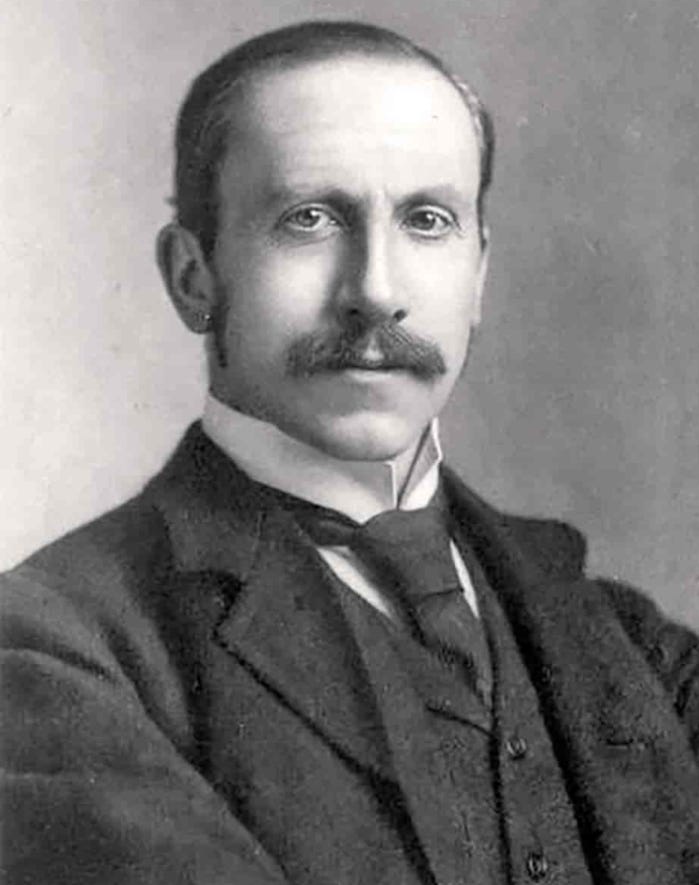
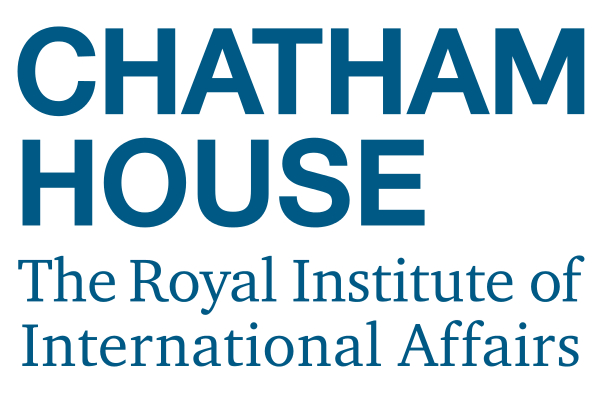











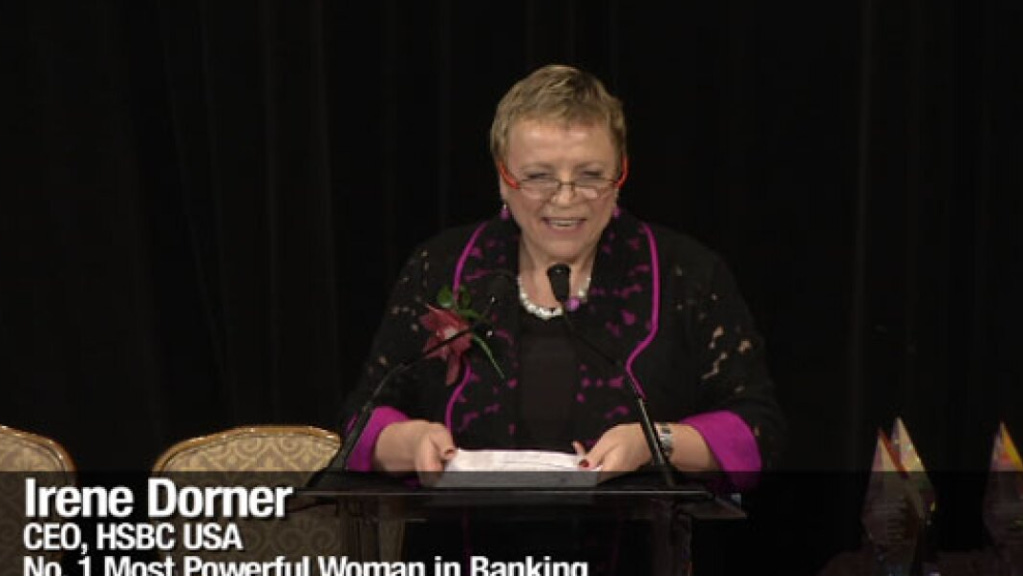



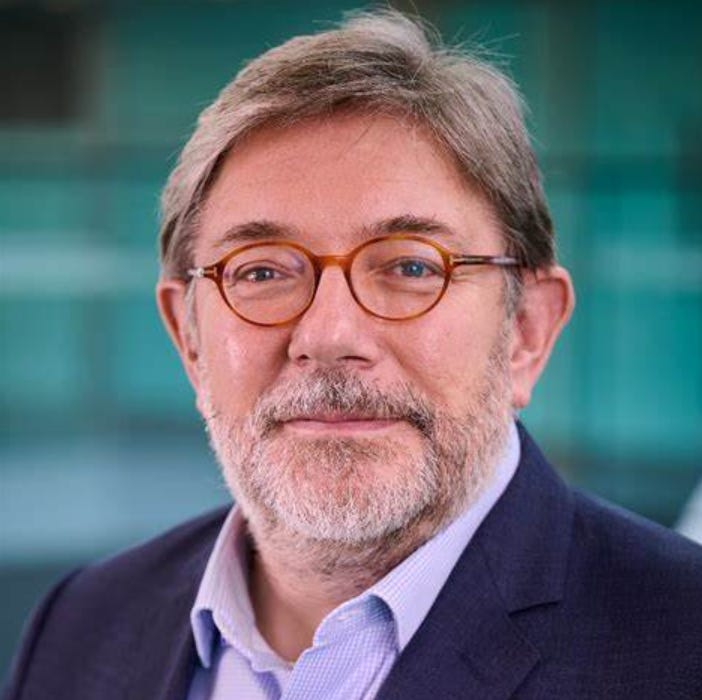

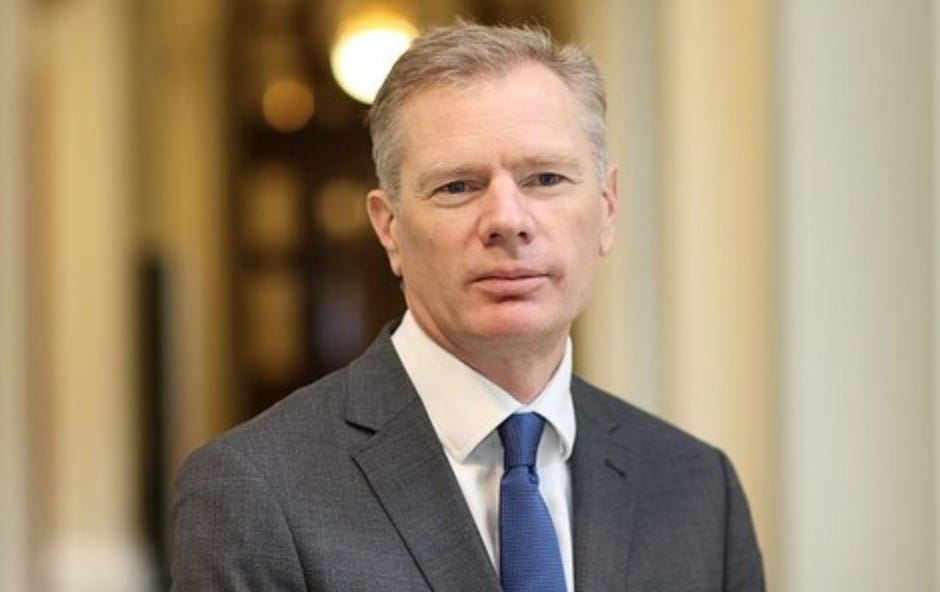














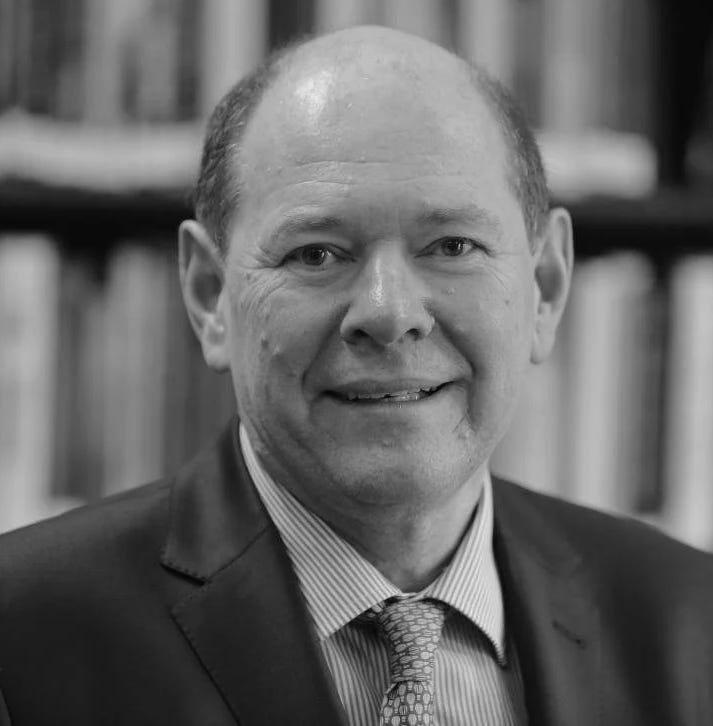


Another essential rogues gallery tour.
What a great start. Right out of the gate, Bronwen Maddox is quoted, “Chatham House is delighted to accept the Patronage of The King, a great help in advancing our work on the security, prosperity and sustainability of the world”. — How delicious … “security, prosperity and sustainability of the world” … someone just nailed the doublespeak trifecta.
“Imperial was, of course, later to be heavily involved in the Covid scam.” — For those who don't know, Imperial College and Neil Ferguson (the darkside's go-to mathematical modeller) were also central to the foot-and-mouth scam/hoax/crime.
My, what a busy little bee Manningham-Buller was and is, in the devil's garden. “And she declared: 'If anyone had any doubt about the critical importance of behavioural science, those doubts should have been roundly dispelled by the urgent and compelling need for it during the pandemic.' ” — And that folks, is the ONLY science that was “followed”.
“Carney has full-spectrum involvement with globalist institutions... “ — I could not have put it better.
A note of interest on the Carlyle Group: “The Family Steering Committee asked the 9/11 Commission to question SEC and CIA officials to learn “Were individuals with ties to terrorists or states which sponsor terrorism involved in shorting airline and other stocks which were impacted by the terrorist attacks on September 11th?” This included a cousin of President George W. Bush, Wirt Walker III, who coincidentally placed bets that airline stocks would fall after September 11th. And Walker happened to be a board member of the Carlyle Group, along with Osama bin Laden’s brother Shafiq bin Laden.” (Ray McGinnis / September 21st, 2022)
For a poem that could almost have been written about Chatham House, you might like this one … https://redpillpoems.substack.com/p/birds-of-a-feather
Quite the piece … and I haven't even begun the trustees section.
‘Criminocracy’ is seeming more and more apt. On the one hand it is kind of depressing to think how much of the power game is way beyond ‘politics’ as we usually think of it, and hence beyond what we could hope to address via normal political channels. On the other, that the elite is so small and tightly bound would seem to make them very vulnerable to non-ordinary political action.